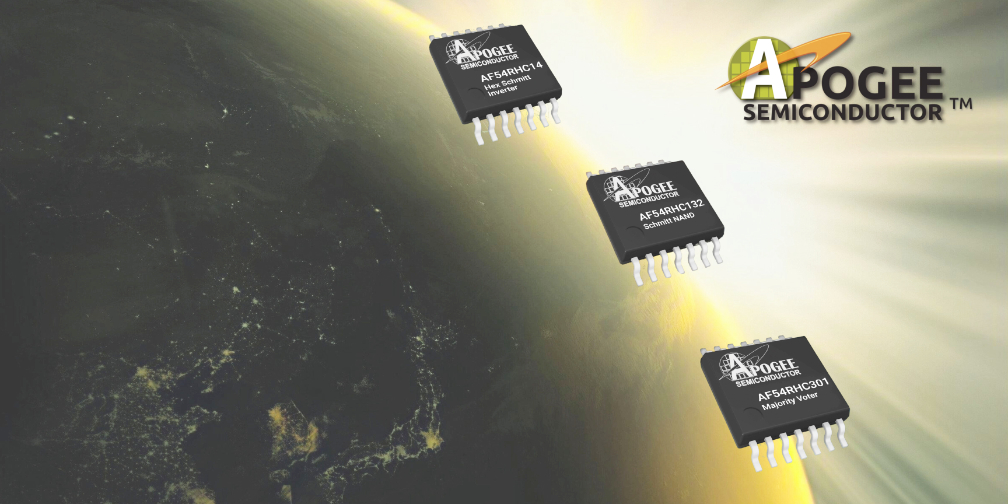
Apogee Semiconductor, Inc. has launched their AF54RHC GEO family of radiation-hardened integrated circuits (ICs) designed for MEO, GEO and deep space missions.
The AF54RHC GEO family features essential capabilities for GEO applications, including a required 300 krad (Si) total ionizing dose (TID) performance and greater than 80 MeV·mg/cm² single event effect (SEE) performance. These ICs operate from 1.65 V to 5.5 V and are available in TSSOP 14 and TSSOP 20 pin packages that follow a QML-P “like” flow.
In addition to the new GEO family, Apogee Semiconductor is also enhancing the TID radiation performance of its AP54RHC LEO family from 30 krad to 70 krad TID at 3.3 Vdc. This upgrade will enable our customers to use our LEO products in more demanding radiation environments that require additional resilience.
Anton Quiroz, CRO of Apogee Semiconductor, said, “This new family builds on the successful flight heritage of our AP54RHC LEO family. Our customers using the AP54RHC LEO family sought 300 krad (Si) for their GEO missions, prompting us to develop the GEO family with pin-to-pin compatibility for an easy upgrade path to GEO missions. We are currently offering nine variants of the GEO family for sampling, with many more on the way.”

About Apogee Semiconductor:
Since 2014, Apogee Semiconductor, Inc. has been at the forefront of developing radiation-hardened IC design tools and processes. With a team of highly experienced design, systems, and process engineers, Apogee takes a unique and intelligent approach to radiation-hardened-by-design (RHBD) IC design, verification, test, and manufacturing. The company’s rapidly expanding portfolio offers a comprehensive suite of products that provide superior value to our customers.



